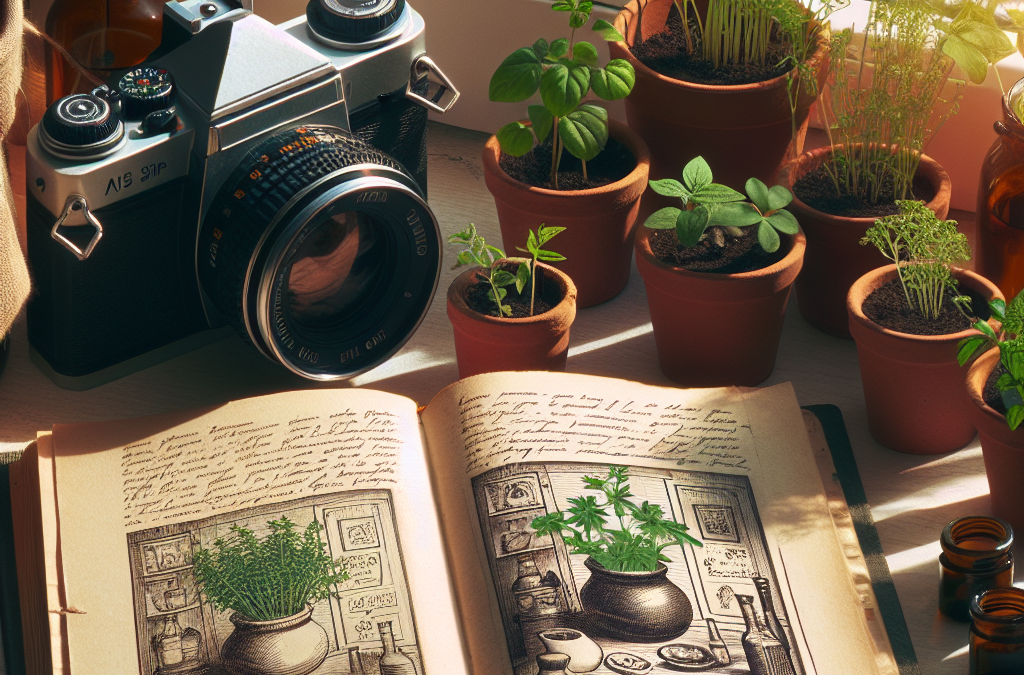Are you tired of spending money on expensive herbal remedies that don’t work? Do you want to take control of your health by growing your own medicinal plants at home? If so, then this guide is for you. In this article, we will explore the ins and outs of creating a home apothecary, from choosing the right herbs and spices to harvesting and preserving them. Let’s get started!
Introduction to Home Apothecary
A home apothecary is simply a collection of medicinal plants grown in your backyard or indoors. By cultivating these plants, you can create your own natural remedies for common ailments such as headaches, digestive issues, and stress relief. Not only does growing your own herbs and spices save you money, but it also ensures that you are using fresh, high-quality ingredients.
Choosing the Right Herbs and Spices for Your Garden
The first step in creating a home apothecary is selecting the right herbs and spices for your garden. Here are some popular options to consider:
Basil: This fragrant herb is great for making pesto, pasta sauces, and salads. It also has anti-inflammatory properties that can help relieve muscle pain and inflammation.
Mint: Mint is a versatile herb that can be used to make tea, flavor water, and even desserts. It also has antibacterial properties that can help fight off colds and flu.
Lavender: Lavender isn’t just pretty; it’s also useful for reducing anxiety and promoting relaxation. You can use it to make sachets, essential oils, and even cocktails.
Rosemary: Rosemary is an excellent choice for cooking, especially with meats and roasted vegetables. It also has antioxidants that may improve brain function and protect against cancer.
Planting and Growing Your Own Herbs and Spices
Once you have selected the herbs and spices you want to grow, it’s time to plant them. Here are some tips for success:
Choose a sunny spot in your yard or windowsill for your herb garden. Most herbs need at least six hours of direct sunlight per day.
Use good quality soil that drains well. You can buy potting mix specifically formulated for herbs, or make your own using compost and other organic matter.
Water your plants regularly, but avoid overwatering which can lead to root rot.
Pinch off flower buds as soon as they appear to encourage bushy growth and prevent flowering.
Harvesting and Preserving Your Homegrown Ingredients
After several months of tending to your herb garden, it’s time to reap the benefits of your hard work. Here are some tips for harvesting and preserving your homegrown ingredients:
Harvest herbs early in the morning when the leaves are still dry. Snip off the top 1/3 of each stem, leaving enough foliage to promote new growth.
Dry your herbs either by hanging them upside down in a dark place or by spreading them out on a baking sheet in the oven at low heat (120°F).
Store dried herbs in glass jars away from light and moisture. They should keep for up to two years.
Creating Your Own Herbal Remedies
Now that you have a supply of freshly picked herbs, it’s time to start creating your own herbal remedies. Here are some ideas to get you started:
Make a calming lavender sleep pillow by stuffing dried lavender flowers into a small cloth bag and placing it under your pillow.
Create a soothing chamomile tea by steeping dried chamomile flowers in hot water for five minutes.
Mix together equal parts echinacea and goldenseal powder to make a powerful immune booster. Take one teaspoon daily during cold and flu season.
Conclusion: Tips for Maintaining a Successful Home Apothecary
Here are some final tips for maintaining a successful home apothecary:
Keep track of what works and doesn’t work for you. Write down any symptoms or conditions you’re trying to treat, along with the herbs and dosages you’ve tried.
Experiment with different combinations of herbs to find ones that work best for you. For example, try mixing ginger and turmeric for joint pain or peppermint and ginger for nausea.
Finally, enjoy the process of growing and experimenting with your own herbs and spices. It’s a fun way to connect with nature and take charge of your health.





